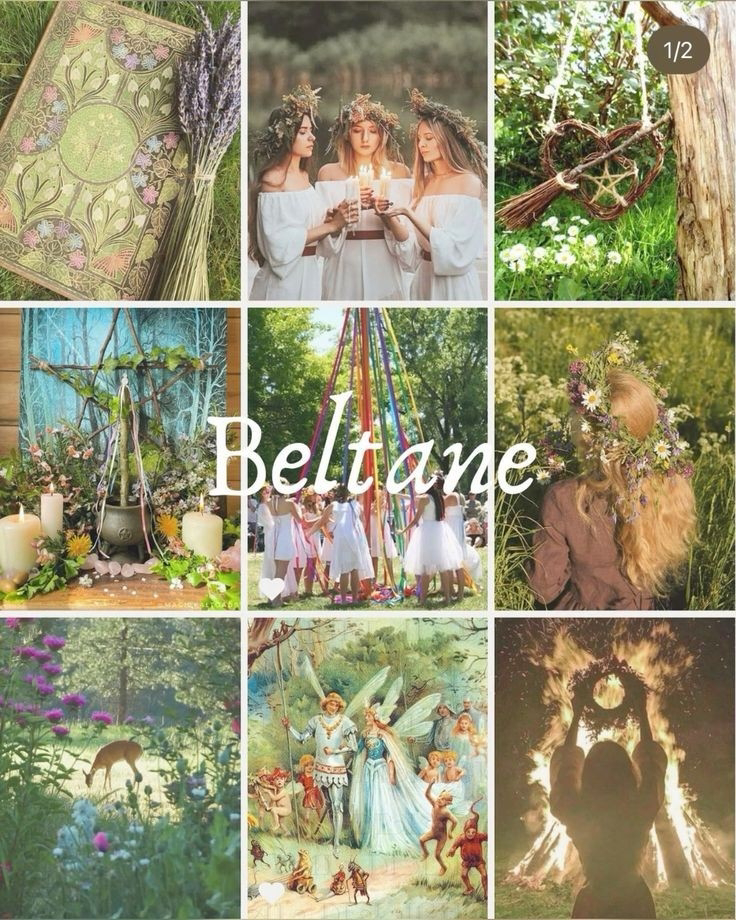Christianity and Divination: Walking Between Scripture and Spirit
Many people ask me, as a witch, how I reconcile my love for divination with the teachings of Christianity. It’s a question that comes from curiosity, concern, or sometimes confusion — and it’s a question I’ve spent years exploring in my own spiritual practice. The truth is, Christianity and witchcraft are often seen as opposing forces, yet both are human attempts to reach the divine, to seek guidance, and to understand the mysteries of life. Today, I want to take you on a journey through these two worlds, examining the biblical warnings, the sacred practice of divination, and how modern mystics bridge the divide.
The Biblical View: Guidance Only Through God
The Bible is clear in its stance: seeking hidden knowledge or supernatural guidance outside of God is forbidden. Divination, sorcery, and consulting spirits are consistently warned against. Consider these verses:
-
Deuteronomy 18:10–12 (NIV):
"Let no one be found among you who sacrifices their son or daughter in the fire, who practices divination or sorcery, interprets omens, engages in witchcraft, or casts spells, or who is a medium or spiritist or who consults the dead. Anyone who does these things is detestable to the Lord." -
Leviticus 19:26 (NIV):
"Do not practice divination or seek omens." -
Isaiah 8:19 (NIV):
"When someone tells you to consult mediums and spiritists, who whisper and mutter, should not a people inquire of their God? Why consult the dead on behalf of the living?" -
Acts 16:16–18 (NIV) describes Paul encountering a slave girl with a spirit that predicted the future. He commands the spirit to leave her, demonstrating the early Christian perspective that divination is linked to unclean spirits.
From a traditional Christian perspective, guidance should come only from God, through prayer, scripture, and the Holy Spirit. Humans are recipients of divine knowledge, not manipulators of unseen forces.
The Witch’s Perspective: Divination as Sacred Connection
In contrast, divination in modern witchcraft is not about control or manipulation. It is a sacred practice, a way to communicate with Spirit, with ancestors, and with the divine energy that flows through all things. Tarot, pendulums, astrology, and other forms of divination serve as mirrors for our intuition, symbolic guides through the complexity of life.
Rather than consulting spirits to bend reality to our will, witches listen. We observe omens, read signs, and honor the guidance of ancestors or spirit allies. It is a relationship with the unseen — a dance, not a demand. In this light, divination becomes an act of reverence rather than rebellion, a reflection of divine wisdom rather than a shortcut to power.
Walking the Line: Discrepancies and Dialogue
The contrast between the two paths is most clear in the approach to source and intent. Christianity emphasizes that divine guidance flows only from God. Witchcraft honors the divine in all things, seeing humans as co-creators who can receive wisdom from multiple channels, including intuition, nature, and spirits.
Yet, there is common ground. Many Christian mystics, both past and present, practiced forms of divination or intuitive guidance while remaining faithful to God. They interpreted biblical warnings as targeting exploitative, harmful, or idolatrous practices, not the sacred use of spiritual insight. For example:
-
Deuteronomy 18:10–12 may forbid manipulative or harmful magic rather than all forms of symbolic or intuitive work.
-
Exodus 22:18 (KJV): "Thou shalt not suffer a witch to live." Here, the Hebrew word mekhashepha is often interpreted as “poisoner” or “sorcerer” — actions that harm others — rather than women practicing herbal or intuitive arts.
-
1 Corinthians 12:7–10 lists gifts of the Spirit — prophecy, wisdom, discernment, healing — forms of insight that, in modern language, mirror divination without conflict.
-
Matthew 7:16–20 reminds us: “By their fruits you will know them.” Even divination is judged not by its method but by its outcomes: love, healing, and truth.
In this sense, divination and Christianity are not always at odds. The key lies in intention, alignment with the divine, and the fruits of the practice.
Embracing the Divine in Both Worlds
As a witch walking in my crone wisdom, I honor the lessons of Christianity while embracing divination as a spiritual tool. I see that the Bible warns against harm, manipulation, and misplaced reliance on powers outside of God. I also know that divination, when practiced with integrity, is a sacred language through which Spirit communicates — a mirror reflecting the divine order in the universe.
For those of us on a spiritual path, the truth is not about choosing sides but about recognizing the divine within all things. Tarot, pendulums, astrology, and ancestral guidance are not replacements for God but ways to honor the wisdom flowing through creation. By holding both reverence and discernment, we can walk a path that respects Scripture while fully inhabiting the witch’s sacred practice.
The journey between Christianity and witchcraft is not a contradiction — it is a dialogue. It is a space where intuition meets scripture, where Spirit meets wisdom, and where we honor the unseen while walking a path of conscious intention.
Many blessings,
J.








Comments
Post a Comment